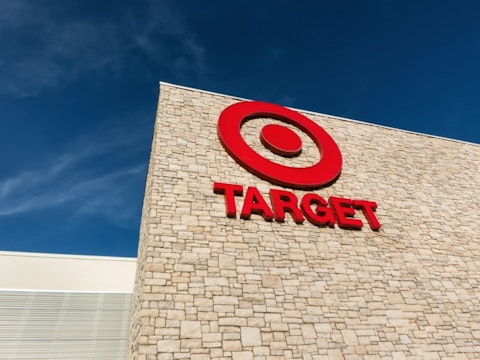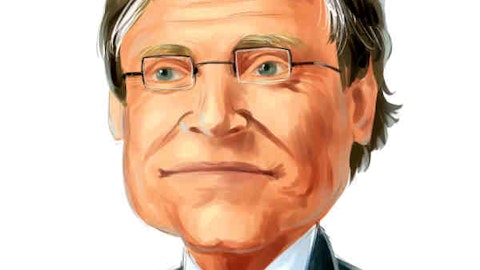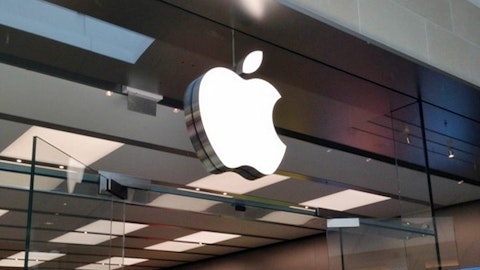The company was founded in 1902 and has paid increasing dividends for 48 consecutive years.

Ken Wolter / Shutterstock.com
Target’s former CEO Gregg Steinhafel – and Target shareholders – did not have a good run in 2013 and 2014. Steinhafel oversaw Target’s expansion into Canada… The company lost $2 billion in 2 years in Canada.
The Canadian expansion was plagued by poor execution, stocking issues, and higher than expected prices.
In addition to the Canada debacle, Target also had a massive data breach at the end of 2013 which compromised around 40 million customer Target credit card numbers. The breach could cost Target upwards of $500 million after accounting for card reissuance costs and settlements.
These issues did not remain unnoticed by hedge funds, as they chose to limit their exposure to the company. At the end of June, 44 funds from our database held stakes equal to 2.20% of the company’s outstanding stock. Among them, Donald Chiboucis‘ Columbus Circle Investors held the top position, containing 2.60 million shares, followed by Cliff Asness’ AQR Capital Management and Ken Griffin’s Citadel Investment Group with 1.84 million shares and 1.83 million shares, respectively.
Former CEO Gregg Steinhafel was replaced in 2014 by Brian Cornell. Cornell is the first CEO hired from outside of Target in the company’s history. Cornell’s impressive resume is as follows:
- Executive Vice President & Chief Marketing Officer of Safeway from 2004 to 2007
- CEO of Michaels from 2007 to 2009
- CEO of Sam’s Club from 2009 to 2012
- CEO of PepsiCo Americas Foods division from 2012 to 2014
At Safeway, earnings-per-share grew from $1.25 in 2004 to $1.99 in 2007 while Brian Cornell held a senior management position. Of course, it is very difficult to say if strong growth over that period is directly attributed to him or not.
Cornell left Safeway to become CEO of Michaels from 2007 to 2009. The company was owned by 3 private equity groups at the time, so results are not publicly available.
Cornell must have done well at Michaels, as Wal-Mart Stores, Inc. (NYSE:WMT) hired him to run Sam’s Club in 2009. Cornell boosted operating income at Sam’s Club from $1.5 billion to $2.00 billion in his tenure there – a compound growth rate of 10.1% a year.
PepsiCo, Inc. (NYSE:PEP)’s operating structure changed under Cornell’s time there, making comparisons difficult.
Target’s new CEO quickly made a positive impression by announcing the company would sell its Canada operations. This move will be very beneficial for Target shareholders over the long-run. It focuses the company’s operations, advertising spend, and management on its lucrative United States operations.
The company continues to divest non-core operations and focus on its strengths of quality merchandise at low prices.
Target recently struck a deal with CVS Health Corp (NYSE:CVS). In the deal, Target will sell all its pharmacy operations to CVS Health for $1.9 billion (approximately $1.2 billion after tax). CVS Health Corp (NYSE:CVS) will rebrand and run all of Target’s in-store pharmaceutical operations.
The deal further focuses Target on providing low cost, quality merchandise to its customers while outsourcing what it doesn’t do best. CEO Brian Cornell had this to say about the deal:
“By partnering with CVS Health, we will offer our guests industry leading health care services, and at the same time, sharpen our focus on elevating the way we deliver wellness products and experiences to our guests.”
The bulk of funds from the CVS Health Corp (NYSE:CVS) deal are expected to be uses for share repurchases.
NYSE:CVSNYSE:TGTNYSE:WMTYahoo FinanceCVS Health Corp (CVS)Target Corporation (TGT)Wal Mart Stores Inc. (WMT)Is CVS A Good Stock To Buy Right Now?Is TGT A Good Stock To Buy Right Now?Is WMT A Good Stock To Buy Right Now?Show more...Show less




